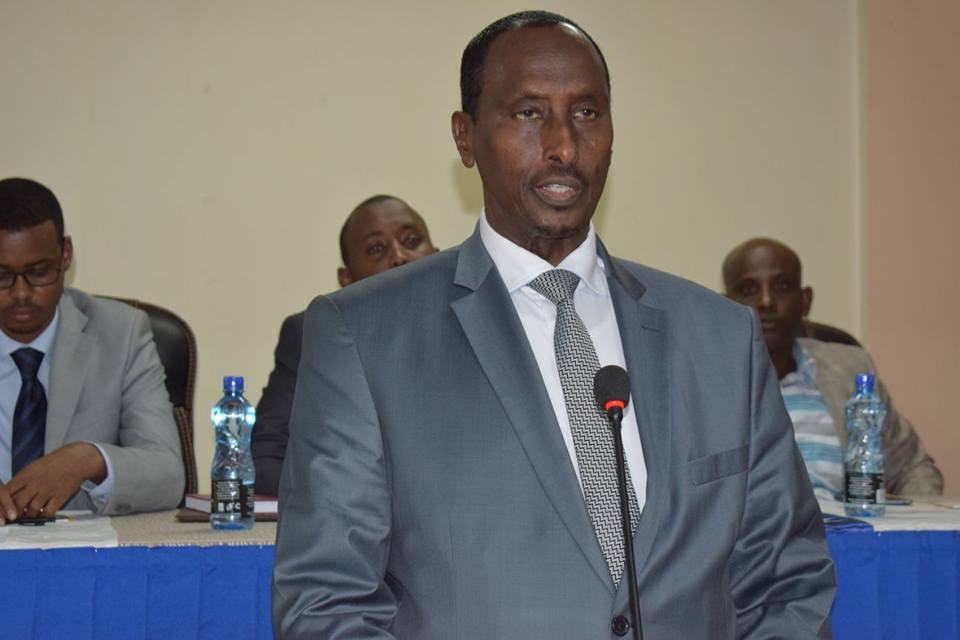[ad_1]
Although he categorically denied that he was investigating Deputy President William Ruto, Director of Criminal Investigations George Kinoti has revealed an intensive inquiry into the plunder of the Kenya Pipeline Company that could include the controversial purchase of a parcel of land.
“I’m investigating the massive plunder of KPC. Anybody who stole from KPC, no matter the period, no matter the trick they used to steal, must return the public property or they’ll go to jail,” Mr Kinoti told the Nation on Wednesday.
His terse warning came in the wake of reports that the department had reopened investigations into sale of land hived off Ngong Forest to the corporation.
In 2004, Mr Ruto was charged, alongside two people and five companies, over the transaction. They were later acquitted for lack of evidence.
Mr Kinoti said several people had been interrogated on the KPC, but would not reveal any names.
Meanwhile, the Nation has learned that the DCI will be summoning directors of 13 firms for questioning.
A beneficiary firm, Berke Commercial Agencies, was charged in 2004 alongside Mr Ruto and others with receiving Sh96 million from the KPC payout.
The company was allocated a 4.31 acre plot which it sold to the parastatal for Sh19,403,528. Its directors were Mr Ruto, Willy Bett Kipkorir, David Kemei Kibet, and James Bett Kiprop.
In 2004, Mr Ruto, who was at the time the Eldoret North Member of Parliament, Mr Joshua Kulei, a former personal aide to retired president Daniel arap Moi, former Lands Commissioner Sammy Mwaita, and five companies were charged in relation to transactions touching on the land deal, but were all acquitted in 2011.
On Monday afternoon, Mr Paul Chirchir, a director of Priority Limited, presented himself to the DCI headquarters on Kiambu Road, Nairobi, to shed light on how they acquired one of the 33 parcels of land.
Court papers show that Priority Ltd was allocated a 12.52-acre parcel. Records at the companies’ registry show that Priority Ltd is owned by Mr Chirchir and Mr Mathews Otieno.
“It is true that the DCI, specifically Chief Inspector Patrick Maloba, asked for my clients and we turned up with a director, Mr P. Chirchir,” said Mr Katwa Kigen, who is representing Priority Ltd. He said his client was not pleased with the fresh investigations given the fact that the court had ruled on it nearly nine years ago.
“He (Mr Maloba) is investigating the case that was investigated and prosecuted by CID (Criminal Investigations Department, now DCI), then adjudged by the court with an acquittal in 2011, case No 973 of 2004,” Mr Kigen said.
He added: “He wants to know who signed for sale agreements and who was paid for the sale. All these were on trial in the case No 973 of 2004, prosecuted by CID from 2004 to 2011. The CID couldn’t say the motive for the unorthodox and, in my view, vain attempt to reopen the case.”
The lawyer further said the statement that was recorded by the investigator on Monday was done ”irregularly and inaccurately”. “My client’s director refused to sign until it is regularised,” Mr Kigen said.
The State has discretion to restart any criminal case for whichever reason even after it has been thrown out by the courts if police stumble on fresh evidence or if one of the witnesses decides to open up.
Priority Ltd, together with Monene Investments Ltd, sold the DP the contentious piece of land in 2007 for Sh10 million where he built Weston Hotel on Langata Road.
The land is also claimed by the Kenya Civil Aviation Authority (KCAA), which alleges that the DP was allocated the land illegally, a claim Weston Hotel Limited in fighting in court. Fresh investigations by police into a Ngong Forest land scandal could also spell a career doom for a Court of Appeal nominee judge.
The judge told the Nation that he had not been asked to record a statement at the DCI, but was ready to do so if summoned.
“I’ve also heard the rumours about the new investigations, but I’m yet to receive any summonses. I’m ready to cooperate when called to shed light on the issue,” he said.
The judge is among 41 persons recommended by the Judicial Service Commission (JSC) to be named as judges of various courts, but whom President Kenyatta has declined to gazette, saying some of them are tainted.
This will not be the first time for the case to haunt a judge. In April 2011, Nairobi chief magistrate Gilbert Mutembei dismissed the case against Mr Ruto and his co-defendants, saying the prosecution had failed to prove that the three received the money from KPC.
The ruling came to haunt Mr Mutembei when he was interviewed four months later by the Judicial Service Commission (JSC) to be a High Court judge.
He was asked to explain why the defendants were acquitted without a witness giving evidence, but Mr Mutembei maintained that his ruling was based on evidence. He lost his bid to join the High Court and retired.
While testifying in court in March 2011, Mr Kennedy Wabuoba, a police officer who investigated the case in 2003, said he did not trace any money from KPC to the accused persons’ bank accounts.
“Money for the land transaction was paid to Nyaundi Tuiyot and Company Advocates. I do not know how the law firm dispensed the cash,” he said in court.
During the trial, Mr Tom Joseph Kajwang’, KPC’s advocate, told the court that titles for 33 plots excised from the Ngong Forest were clean.
[ad_2]
Source link


















































